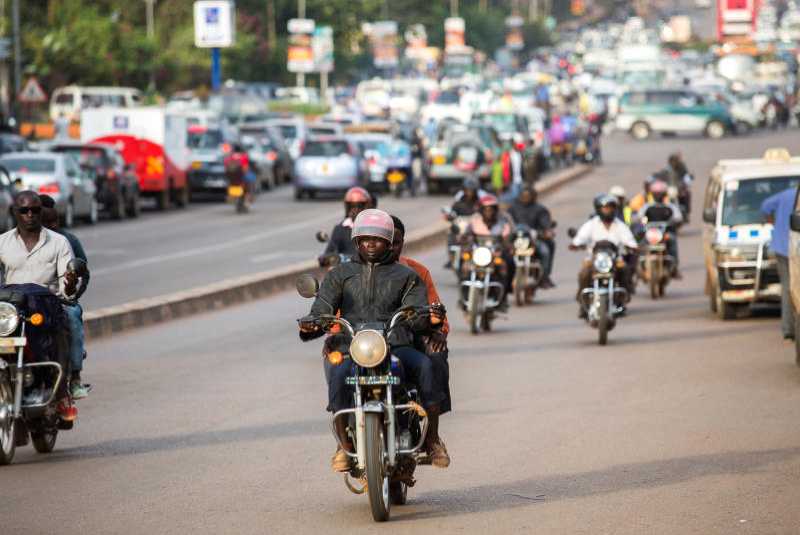×
The Standard e-Paper
Home To Bold Columnists

Ugandans traveling from one destination to another by boda (motorbike taxis) on a wide avenue in the capital city. Boda is a rapid but risky mode of transport in Uganda. [Photo: Standard]
A database with the details of all motorcyclists is one of the measures the Government is mulling to restore order among the operators.